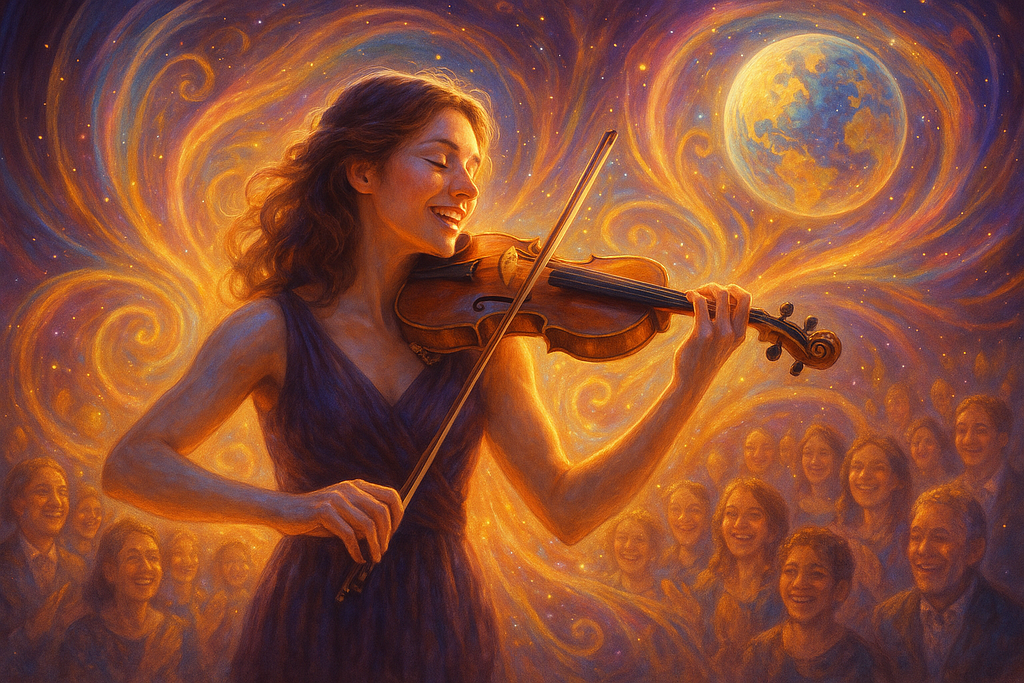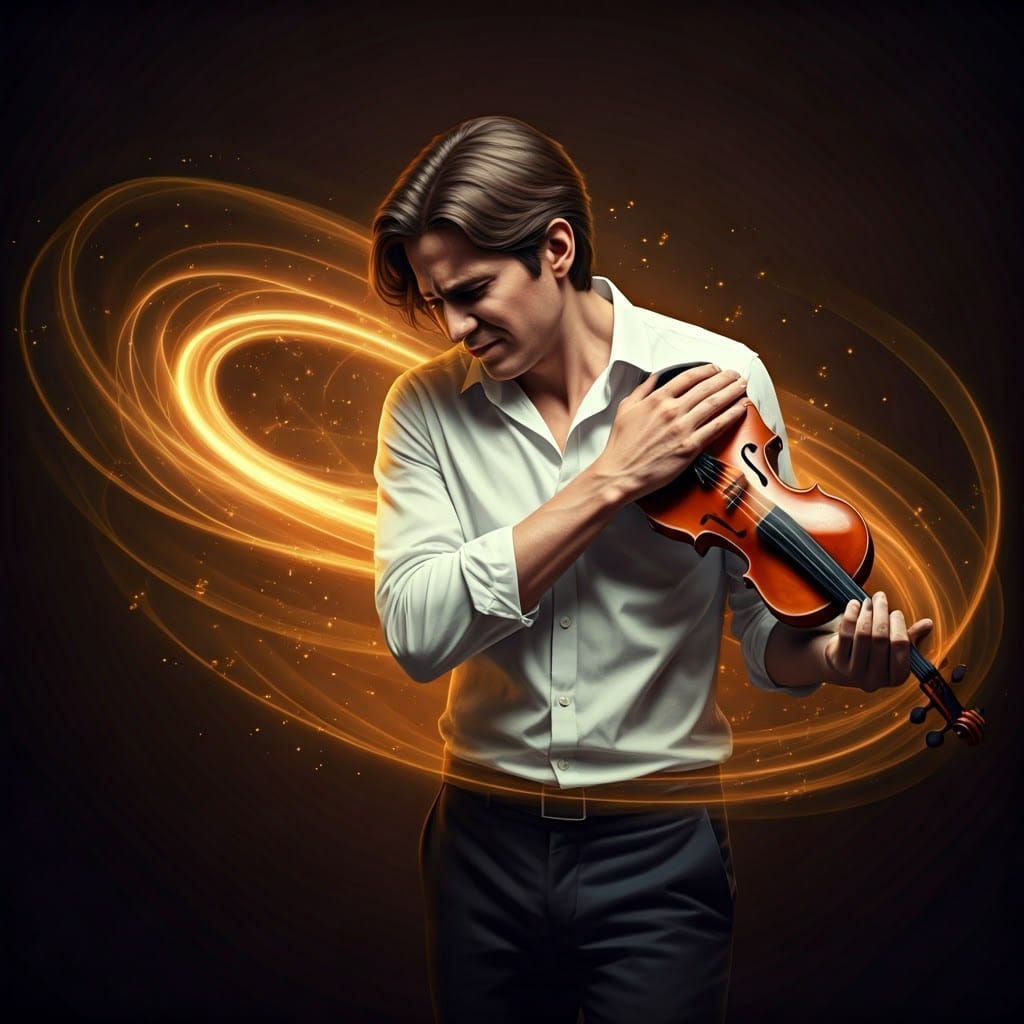Hello friends!
Here’s another excerpt from my upcoming book, “Soulforce Arts: The Vital Role of Musicians & Other Artists in a World That’s Lost Its Mind.” It’s from Chapter 1, which is on the “separation-thinking” that pervades our entire society, and which is responsible for many of the ills we see in the arts. Enjoy!
Subscribe to my mailing list to be among the first to know when my book is published in Spring 2023. JosephArnold.com
Joseph
Photo by Michael Pointner on Unsplash
The Most Important Thing
“Because we see matter as essentially soulless, we view the body as profane, and consider ‘worldly’ to be the antonym of ‘holy.’ Without compunction, then, we trash our planet and our bodies. Not holding them sacred, our abuse is limited only by practical concerns—and a very narrow, short-sighted practicality it is.”
— Charles Eisenstein, The Yoga of Eating
Everyone knows what the most important thing in the arts is. You just feel it. It’s what lights up your face when you talk about that life-changing concert you went to back in ‘09, it’s in that poem that saved your life after that really bad break-up (you know the one), and it’s what motivates you to keep practicing your art even when things get tough. But even though everyone knows what this is, not everyone has a word for it, and that’s because the most important thing in the arts has to do with the ineffable experience of what moves you in life. I call it soul.
Soul is so clearly what animates the creation of great art and is so obviously what draws audiences to experience that art that saying so explicitly is almost redundant. And yet soul is what appears to be missing from the lives of altogether too many artists and from much of the art our society produces, a fact in such stark contrast to the essence of creativity that it would be astonishing if it weren’t so familiar.
Signs of soul’s absence are ubiquitous. For instance, a review of the literature on injuries among professional musicians showed a 62-92% lifetime prevalence of musculoskeletal disorders, which sometimes last for months or years, and can even spell the end of a career in the arts. Stories abound of artists suffering from debilitating emotional challenges such as performance anxiety and depression, and more than one study shows that bipolar disorder and schizophrenia are overrepresented among artists. Top-tier arts schools are among the most competitive learning environments in the world, and as a result after graduating many students report being burnt out and unable to enjoy their art as they used to. Add to all of this the difficulty artists face in making a living (high competition, low wages, poor working environments, and neurotic colleagues to name a few), and you might wonder how anybody ends up becoming, or remaining, an artist at all.
Without soul the arts become mere commodities which reflect the same sickness that can be seen throughout our entire society. Without soul the arts feel cheapened, objectified, hollow, mechanical, and transactional. Without soul the arts leave you feeling dispirited, cheated, numb, let-down, or even betrayed.
This soullessness is a direct result of the strand of separation-thinking–core to our modern western paradigm–that says that things are more real than experiences, that what can be measured is more real than what is ineffable, and that facts are more important than feelings. But given that what is experienced, ineffable, and felt form the true core of the arts, then what place is there for the arts in our society beyond their market value? It’s no wonder so many artists, already among the most sensitive people in our society, experience more depression and anxiety than others; who wouldn’t when told countless times that what you love the most doesn’t really matter?
And it doesn’t help when artists and arts institutions try to justify what they do based on practical measures. Saying that music helps the brain, that poetry improves test scores, and that dance can alleviate depression simply affirms the primacy of this limited view of practicality. None of this speaks to the most important thing. None of this honors what people actually care about in the arts. Why do we so often forget the most important thing?
In almost every area of life, artists are confronted with a horrible choice between what honors their soul and what will get them ahead in systems of money, status, and power. The message almost seems to be: “If you compromise your health, well-being, social life, integrity, artistic vision, fun and play, other interests, and time with family, then you’ll surely reach the top! And if you bribe others into doing the same through paying them wages, then you can really move ahead in the arts industry. If you keep your head down, turn your soul into a factory, and feel grateful for the pittance you receive, you can be assured of having a long and successful career in the arts. Welcome aboard, kid!”
You may notice that this same choice exists in almost every sphere of life in our society, such that janitors, politicians, financiers, teachers, pilots, and almost everyone else feels the same tension between their soul and the system they depend on for survival. That answering your soul’s calling takes a conscious effort, and is not automatically in alignment with what helps you survive in our society, and in fact often requires sacrificing money, status, and power in order to pursue, is not your fault. It is because our society as a whole has lost touch with the most important thing in life and so we get lost in games of money, status, and power.
This is why so many people have a giant hole in their hearts. This is why we see so much violence, destruction, and suffering. And this is why we have the vacuousness of Muzak, the hollowness of pop star fame, and hotel lobbies filled with paintings chosen for their sheer banality. It’s all because we’ve forgotten the most important thing.



